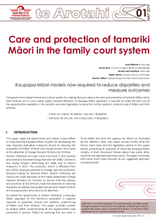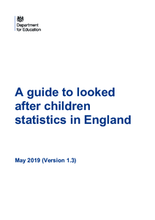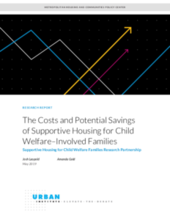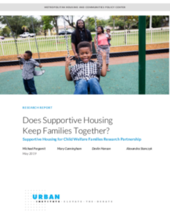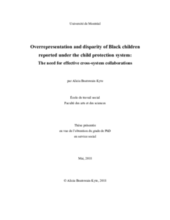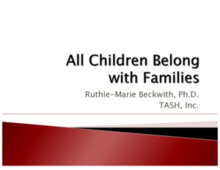Displaying 841 - 850 of 2221
This study examined associations between perceived support from adults in three developmental contexts (home, school and neighbourhood) and mental well-being (life satisfaction, self-concept, optimism) among grade four children living with foster parents in British Columbia (B.C.), Canada.
The objective of this study was to determine the minimum set of cross-agency indicators that could accurately classify placement in out-of-home-care (OOHC) in Australia before age 13–14 years.
This study investigates the nature of newly formed relationships between children and their foster carers.
The objectives of this study were: (a) to measure the time-to-initial placement change in different types of settings, including non-relative foster homes, kinship care, residential treatment centers (RTC), group homes and other types of settings; and (b) to identify predictors of the initial placement change.
This paper urges the government and nation of New Zealand to give effect to long-standing Kaupapa Māori models for developing the new required evaluation measures aimed at reducing the disparities for Māori children and young persons who come to the attention of Oranga Tamariki Ministry for Children.
This document provides a guide to looked after children statistics published by the UK Department for Education.
This study evaluated the effectiveness of the US Department of Health and Human Services’ Administration for Children and Families funded Partnerships to Demonstrate the Effectiveness of Supportive Housing for Families in the Child Welfare System, a five-year, $25 million demonstration that provided supportive housing to families in the child welfare system, in five sites. This report summarizes the results of the cost study, which estimates the costs of the housing and services offered in the demonstration and any savings, or additional costs, resulting from the demonstration’s effects on families’ use of homeless programs and child welfare services.
This report provides findings from the Urban Institute's impact analysis of a program that provided supportive housing to families in the child welfare system in the US.
This three-paper dissertation examines the overrepresentation of Black children reported to child protection services in Canada.
This presentation was given at Disability Rights International and the European Network on Independent Living's webinar on the right of all children to a family by Dr. Ruthie-Marie Beckwith.

